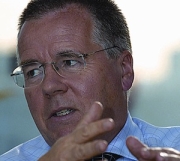

The demise of Rowanmoor Personal Pensions this week comes as no surprise.
I commented on the FOS determination (DRN -3042933) involving Mr T. and Rowanmoor in my article “Just what is fair and reasonable – take 2” back in January.
Sadly, the management of Rowanmoor has come to the understandable conclusion that they have no option but to put the company into administration given the large number of Financial Ombudsman Service (FOS) claims that have been submitted, mainly in relation to the investment in Cape Verde hotel rooms which were central to the determination in favour of Mr T.
In my previous article I raised two issues of concern for the wider SIPP industry as a result of the Rowanmoor determination:
- FOS interpretation and understanding of what represented good industry practice at the time of the setting up of the SIPP and its investment in 2011.
- The implications of the determination for providers given the business in this case – and in many other cases – was introduced by a regulated adviser that subsequently went out of business.
I was critical of the FCA’s failure to take any supervisory action with regard to the activities of this regulated adviser – nor apparently in respect of Rowanmoor’s activities in this area which dated back to 2009.
Part of the FOS justification for upholding the claim was that it was a provider’s responsibility to undertake due diligence on a regulated adviser to the extent of requesting copies of suitability reports and that this was good industry practice at the time. I highlighted that the Pensions Ombudsman in several other determinations came to a very different conclusion.
{loadposition hidden2}
To my knowledge the FOS has never provided any evidence to support their view of what was “good industry practice” at the time other than to refer to the various FSA thematic reviews and related documents that were published over the period 2009-2014. That ignores plenty of evidence to support the view that the SIPPs industry and its trade body AMPs were very unclear of the extent of their responsibilities.
Why would the chair of AMPS have written to the FCA in August 2013 stating: “My understanding is that the SIPP operator is not responsible for the individual choice of investment by an individual member but is answerable to the FCA (not the member) if it is allowing investments that could risk the ongoing operation of the business. A clear statement could help provide clarity which would end up reducing wasted resources in the industry (which ultimately harms consumers).”
As far as I, and others, are aware the FCA never responded to this letter. I have argued repeatedly that the lack of proactivity and industry engagement by the FSA and FCA on these issues was irresponsible and they should be accountable for the damage caused. Instead, the FCA seems content to rely on FOS determinations that, at the very least, are highly debatable.
Recently I raised again the need for clarity around the whole area of investment and adviser due diligence, particularly in the context of “execution only” business. Sadly, those pleas appear to have been ignored with the FCA reported as saying “We have set out our expectations of SIPP operators through several FCA publications, including final guidance in 2013.”
It is a shame that the FCA did not check if SIPP providers understood those expectations at the time. Most of those involved in the running of many of the SIPP providers that have failed were honest and intelligent individuals – who frankly deserved better from their regulator.
Alarmingly, the FCA was also quoted as saying: “Under the new consumer duty, we will have a further basis on which to intervene where we see poor practices. We will hold firms, including senior managers and boards, to account against this higher, clearer set of expectations.” What the FCA does not seem to recognise is that many SIPP operators still do not understand exactly what those expectations are.
Providers can draw some comfort from the comment in the FCA Policy Statement PS22/9 introducing the new Consumer Duty regime which said: “…the Duty would not have a retrospective effect and would not apply to past actions by firms”. The statement also said: “We expect to work closely with the ombudsman service throughout implementation, including by ensuring it has the opportunity to participate in our wider work with firms and other stakeholders. Both we and the ombudsman service work on the basis that firms should be held accountable against the standards that prevailed at the time of the problem.”
That is a laudable ambition but in the context of SIPPs it is reliant on all providers and other stakeholders, including the regulator, having a clear and shared agreement on what those standards were and are. Without that understanding there is a real risk of more SIPP providers joining Rowanmoor and others whose ambitions have already been wrecked on the shifting sands of SIPP regulation.
John Moret is principal of MoretoSIPPs consultancy and one of the UK’s most experienced SIPPs experts, commentators and speakers. He has worked for Suffolk Life and several other SIPPs providers. He is chair of advisory business Intelligent Pensions and CX insight business Investor in Customers.
{loadmoduleid 444}
Leave a Reply